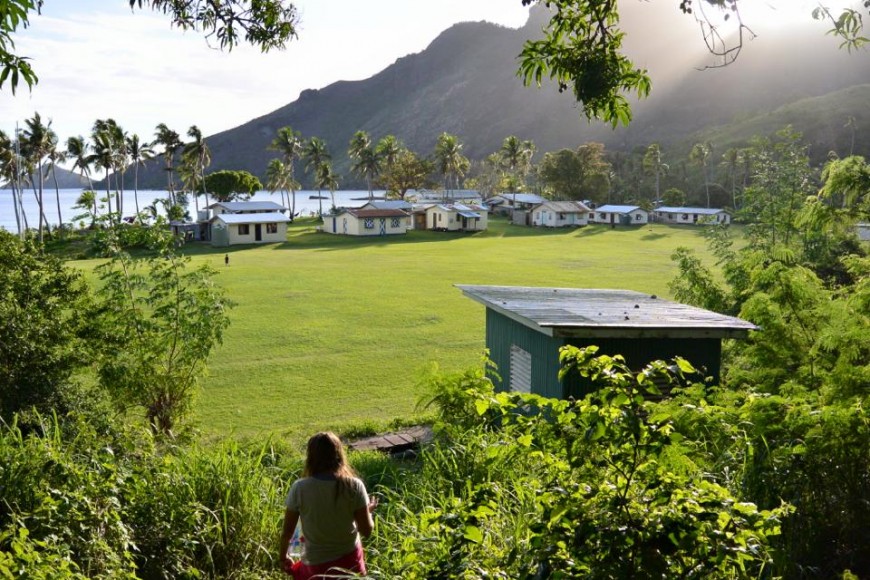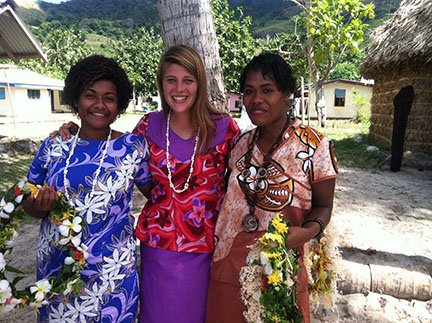
 back to all news
back to all news
Examining Livelihood and Health Implications of Climate Change to Inform Adaptation Strategies in Fiji

From the Peace Corps to the School for Environment and Sustainability (SEAS), Adriane Kline (MS/MPH ’21) has worked at the intersection of health and climate. Kline served as a Fiji Peace Corps volunteer after graduating from U-M with her undergraduate degree in 2014. Her work abroad involved health and environmentally focused projects to mitigate the effects of climate change on human well-being. Kline felt moved to continue this research at SEAS upon seeing the impacts of Cyclone Winston on Fiji’s food security, health, and culture. She wanted to investigate what traditional knowledge communities could use to adapt to climate change.

Kline’s experience in the Peace Corps shaped her master’s thesis. By using connections from the Fiji community she volunteered with, she was able to learn about women and their experiences with climate change in the village. A hired research assistant on the ground used electronic surveys for quantitative analysis while Kline conducted phone interviews for qualitative insights. This research helped define what was needed for adaptation through understanding the health and livelihood implications of climate disturbances.
Results from connecting with the women indicated that cyclones, heat, and sea-level rise were the biggest threats to livelihood and well-being in the community. These burdens affected food security, income generation, water availability, and cultural access to materials for traditional garments and medicine. From a gender perspective, Kline said that “women carried the brunt of climate change because they were responsible for cooking, cleaning, and caring for the family on a daily basis.”
The study paves a path forward that elevates women and livelihood components like food, water, income, and culture in adaptation efforts. Kline has spoken with the community about her findings and plans on sharing her work with the Fiji Ministry of Health. Kline anticipates returning to Fiji once travel is permitted. In the meantime she will work for a nonprofit or government agency that addresses social vulnerability and global health equity. Through learning at SEAS and the U-M School of Public Health, Kline is excited about carrying an interdisciplinary lens into the environmental arena moving forward.
Written by Danielle Vermeer, MS Candidate

